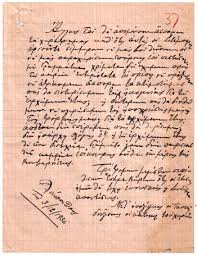
Trevor Todd and Jackson Todd have over sixty years combined experience in handling estate disputes, including lost wills and the presumption of destruction.
Facts of Re Finsant estate 2024 BCSC 217
The deceased died at the age of 81 years in her home. Searches of the home and her personal effects did not find a will. It was known that she had executed a will, almost 20 years earlier, and that the deceased had possession of it. She lived alone, and had no children or surviving siblings and her home was reasonably orderly.
The court found that she appeared to be mentally competent.
The estate dispute was between the named beneficiaries in the will and her next of kin on an intestacy.
Under these circumstances, the court found that she had either intentionally destroyed the will or was lost, stolen or accidentally destroyed.
There is a presumption of destruction of the will that the court found had not been rebutted, and that she must be presumed to have died intestate.
THE LAW
The presumption of destruction was set out in Welch v. Phillips (1836), 1 Moo PC 299 at p. 302, and remains the law in British Columbia: Haider v. Kalugin, 2008 BCSC 930, at para. 11. If, as here, a will is traced to the possession of the deceased and last seen there and is not forthcoming on death, it is presumed to have been destroyed by the deceased, a presumption that holds unless there is “good and sufficient reason to repel it.”
In modern Canadian civil law, there is only one standard of proof in civil cases regardless of the nature of the allegation, namely, proof on a balance of probabilities: F.H. v. McDougall, 2008 SCC 53, at para. 40. But the quality of the evidence necessary to make a finding on that standard will depend on the inherit probabilities or improbabilities: McDougall; Canada v. Fairmont Hotels Inc., 2016 SCC 56, at para. 36.
As Justice Ehrcke explained in Thierman Estate v. Thurman, 2013 BCSC 503 at para. 43:
The presumption [of destruction] recognizes that the burden of proof is on the party attempting to rely on a non‑original copy of a will. Thus, the presumption of destruction of a will that had been in the testator’s possession but cannot be found on his death may be rebutted by evidence establishing on a balance of probabilities that the will was inadvertently lost or misplaced.
The ultimate issue is whether, on a balance of probabilities, the will was more likely to have been deliberately destroyed because the testator had a change of heart or was more likely lost, stolen or accidentally destroyed. The legal onus is on the applicant – in this case Ms. Beggs – as the person trying to rely on a non‑original copy. What the presumption adds is the common‑sense point that we would expect a person who wants a will to be executed to keep it where it can be found when they die. In the absence of a contrary reason, this is the more inherent probability. The application of the legal standard and burden of proof will take this into account.
In other words, if a will in the deceased’s possession cannot be found after a reasonable search, the quality of evidence necessary to support the inference that it was destroyed intentionally is less than that required to support the inference that it was lost or inadvertently destroyed.
At para. 13 of Haider, the court set out the factors typically looked at in deciding whether the presumption of destruction has been rebutted as follows:
- whether the terms of the will itself were reasonable;
- whether the testator continued to have good relationships with the beneficiaries in the copy of the will up to the date of death;
- where personal effects of the deceased were destroyed prior to the search for the will being carried out;
- the nature and character of the deceased in taking care of personal effects;
- whether there were any dispositions of property that support or contradict the terms of the copy sought to be probated;
- statements made by the testator which confirm or contradict the terms of distribution set out in the will;
- whether the testator was of the character to store valuable papers, and whether the testator had a safe place to store the papers;
- whether there is evidence that the testator understood the consequences of not having a will, and the effects of intestacy;
- whether the testator made statements to the effect that he had a will;




